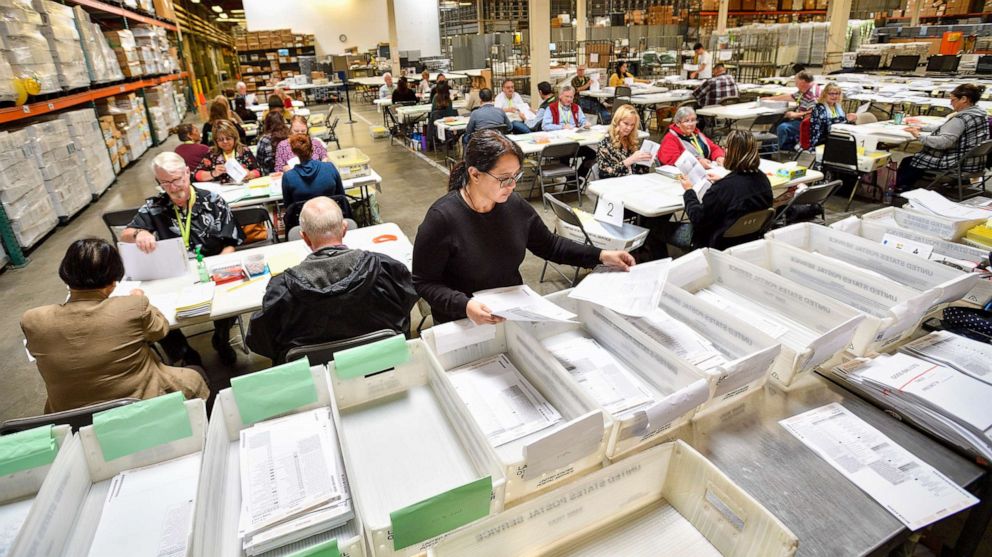Coronavirus muddles competitive House special election in California
Less than a week before a special election in a fiercely competitive battleground district in California, which has emerged as a proxy tug-of-war testing President’s Trump electoral strength in the middle a pandemic, the Democrat seeking to keep control of the seat issued a stark plea: "I need your help to win in CA-25."
"Republicans haven’t picked up a House seat in California in over 20 years – and I am not about to let this one be the first," California Assemblywoman Christy Smith wrote in the email, which was sent to the national Democratic party’s supporter list – underscoring the national influence seeping into California’s 25th congressional district.
The May 12 special election, in the longtime GOP-held district, which covers northern Los Angeles County and is home to some of those critical suburban voters, pits Smith against former Navy Fighter Pilot-turned-Republican candidate Mike Garcia.
The landscape of the toss-up
In March, no candidate in the jungle primary secured a majority of the vote, but Smith topped the crowded field. Leading into Tuesday’s runoff election, the race between Smith and Garcia is expected to be tight, potentially tilting either way.
"This is a really hard election runoff electorate," a Democratic strategist told ABC News. "They're typically more conservative, harder to drive turnout in the base in particular, especially when it's lower propensity, more working class suburban base, as opposed to like higher education, high propensity voters in the white suburbs."
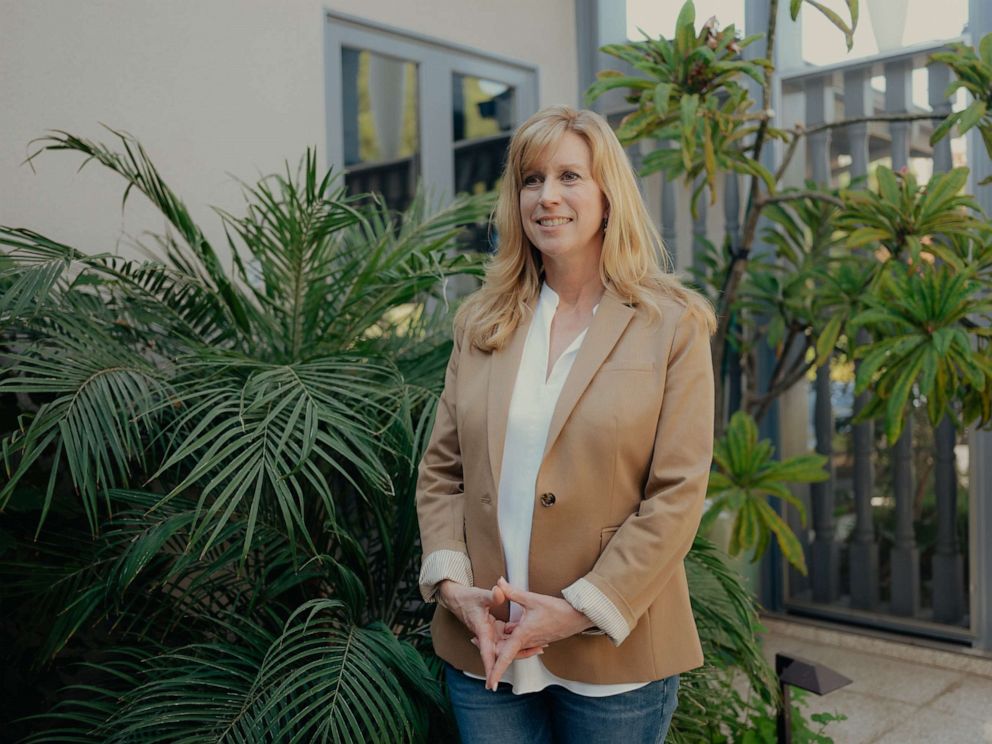
"We were eyes wide open as to how tough of a road this was going to be," the strategist said.
Last month, the race shifted from "lean Democratic" to a "toss up" by Cook Political Report.
Garcia, who earned the endorsement of Trump in April, is seeking to put the seat back in GOP control, after former Congresswoman Katie Hill flipped the top target in 2018, unseating former GOP Congressman Steve Knight by nine points two years after Hillary Clinton won the district in the 2016 presidential election.
Garcia has leaned into his background with the Navy, blanketing ads and digital videos with images of fighter planes and photos of him during his time in the Navy.
"After more than a year of running, the differences between my opponent and me are obvious - I am a former Navy fighter pilot and small businessman who wants to lower taxes for Californians, while my opponent is a liberal Assemblywoman who wants to raise taxes in Washington because that's exactly what she's done in Sacramento," Garcia said in a statement to ABC News.
Garcia is seeking to serve out the rest of Hill’s term through November. Hill resigned last year after the House Ethics Committee opened an investigation over allegations she had inappropriate relations with a congressional staffer, a violation of House rules. Hill denied the accusation but vacated her post and endorsed Smith shortly after.
Late last month, Hill made her first re-entry into politics with the launch of her PAC, HER Time, pouring $200,000 into an ad campaign encouraging supporters to vote in the special election, without mentioning Smith or Garcia.
For Smith, a former Republican who scored former President Obama’s first down-ballot endorsement of the cycle earlier this week among other top national Democrats, a win could preview the staying power of the party’s support in areas of the country that helped deliver the U.S. House in the midterm elections and will be crucial for 2020.
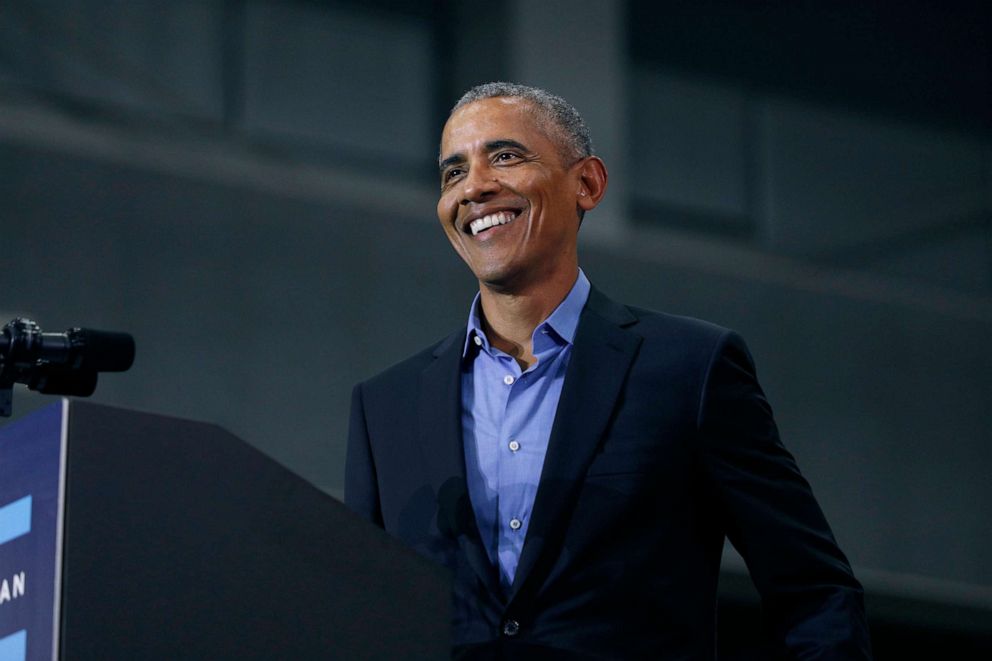
The race has not only become nationalized but has seen its final weeks unfold in the midst of the novel coronavirus. Democrats say they are doing "everything" when it comes to organizing, with the exception "of getting within six feet of people" - even pouring $3 million into the race.
Meanwhile, the National Republican Congressional Committee (NRCC), the campaign arm for the House GOP, has waded into the race, spending weeks hammering Smith and running ads that cast her as "bad for workers" and take aim at the state lawmaker over taxes.
At the end of April, Garcia and Smith squared off in a virtual candidate forum hosted by the Santa Clarita Valley Chamber of Commerce over video conference. Despite the focus on business-related issues, both candidates outlined the stakes of the race and the outsize importance of the matchup due to the ongoing public health crisis that could continue through the fall.
"This is an absolutely critical election that we have going on right now," Garcia said. "We need to really ensure that who we're electing to these types of offices have the background and the experience...This isn't a Republican versus Democrat thing. This is about survival. This is about survival for our nation. It's about survival for us as Californians."
"This leadership is about all of us having collective conversations about what this roadmap needs to look like across this district," Smith said. "I've been on the other side of a hiring table before in crucial moments like this, and I always want to choose the employee with the most relevant, direct experience. I have 10 years of elected public experience."
Smith’s campaign often stresses the importance of having a representative in Washington with the experience to deliver economic relief to Americans amid the coronavirus outbreak, seeking to set her apart from her opponent, a political novice.
"This election is critical. There are trillions of dollars currently being spent on public health safety and economic recovery, and CA-25 residents currently lack a voice in Congress fighting for their priorities," Kunal Atit, Smith’s deputy campaign manager, said in a statement to ABC News. "In the midst of this unprecedented public health, and economic crisis, where families are losing loved ones and their financial security on a daily basis."
An early test for vote-by-mail
The coronavirus not only forced the candidates off the campaign trail and into the digital sphere, but also upended how the election is run: the contest is now being conducted almost entirely by vote-by-mail, with only some in-person voting sites open on election day.
While a host of Democratic efforts are underway to expand mail voting, either in Congress or at the state level or in the courts, some Republicans, led by Trump, are pushing a narrative that mail voting is ripe for corruption - even though there is no evidence of widespread fraud.
In a follow-up tweet endorsing Garcia, Trump appeared to sow doubts over the integrity of vote-by-mail, writing, "Turn your Ballots in now and track them, watching for dishonesty. Report to Law Enforcement."
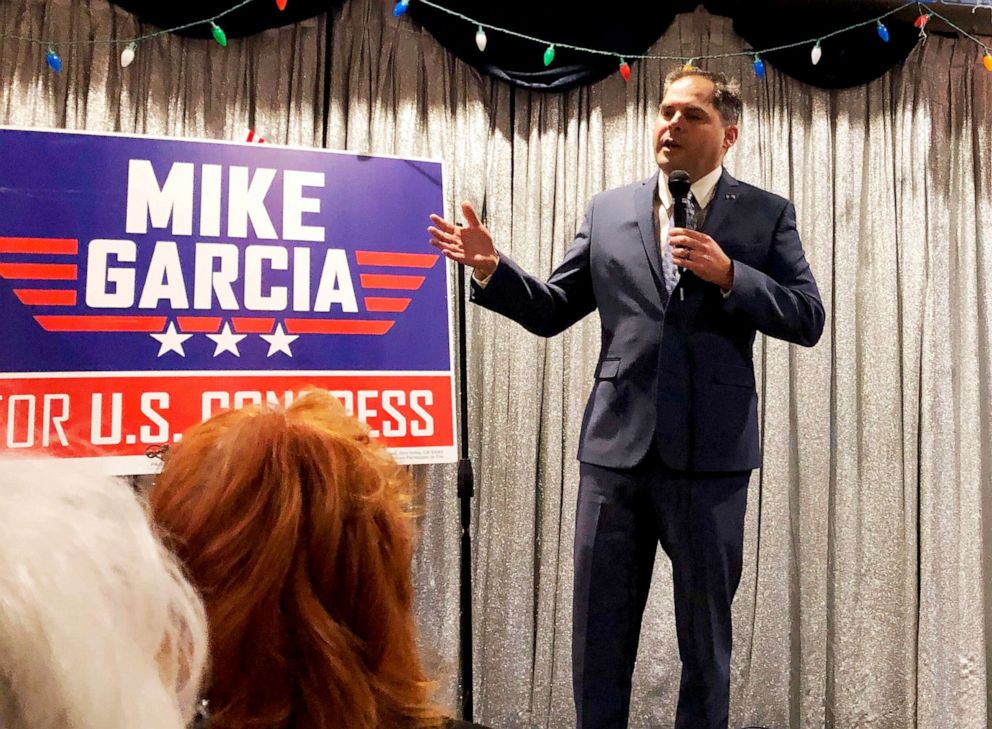
But experts say that although crimes relating to ballots aren’t non-existent, they are rare - and oftentimes don’t align with the narrative that questions the integrity of the process.
"Oftentimes when these crimes occur, they're crimes against others like stealing ballots out of their mailbox, rather than voters committing fraud. The total number of prosecutions is small relative to the number of ballots that are cases," Rick Hasen, a professor of law and political science at University of California Irvine, told ABC in an April interview.
"This is especially true in the five states that use almost completely vote-by-mail systems, at very low rates of fraud. So it's not a non-existent problem, it's a real problem but it's a very small couple," he said.
In a statement to ABC News, California Secretary of State Alex Padilla disputed claims made by Trump and other prominent Republicans that voting by mail could mean an increased risk for fraud.
"For years, Trump has lied repeatedly about election integrity and has never backed up his claims with any evidence—his own 'election integrity' commission folded without proving a single case of voter fraud," Padilla said. "His claims are nothing but a blatant effort to undermine confidence in our elections and distract from his failure to respond to our current health crisis."
California is already a state that relies in part on voting by mail - with nearly 58% of voters casting mail ballots in the 2016 presidential election.
In mid-March, California Gov. Gavin Newsom, a Democrat, signed an executive order requiring counties in the district to mail every voter a ballot for the special election. While California offers robust options for absentee and mail voting, the switch means that limited in-person voting options will be available on election day.
In the district, each of the 425,000 registered voters were sent a ballot with return postage paid. As of Friday morning, only 27%, or just over 115,000 ballots had been returned, according to data provided by the secretary of state’s office.
As a national debate filled with partisan divisions over the voting alternative looms over the election, the race offers an early test for mail voting ahead of November.
On Friday, Newsom signed another executive order to mail ballots to the state’s 20.6 million voters for the November election, with pre-paid postage, while also putting in place new guidelines for in-person voting.
A 'dress rehearsal' for November
Even with a victory on Tuesday, the race is far from over. The ultimate winner will also have to compete in a rematch come November to serve a full term, drawing out the contest for nearly six more months.
But come the fall, experts suggest a different electorate could mean a different dynamic, even with the same two candidates.
"Even if Garcia were to narrowly win, Republicans wouldn't be able to count it as a firm step towards the majority, because he could easily lose a higher-turnout, guaranteed rematch against Smith in November," wrote Dave Wasserman, the House Editor for The Cook Political Report.
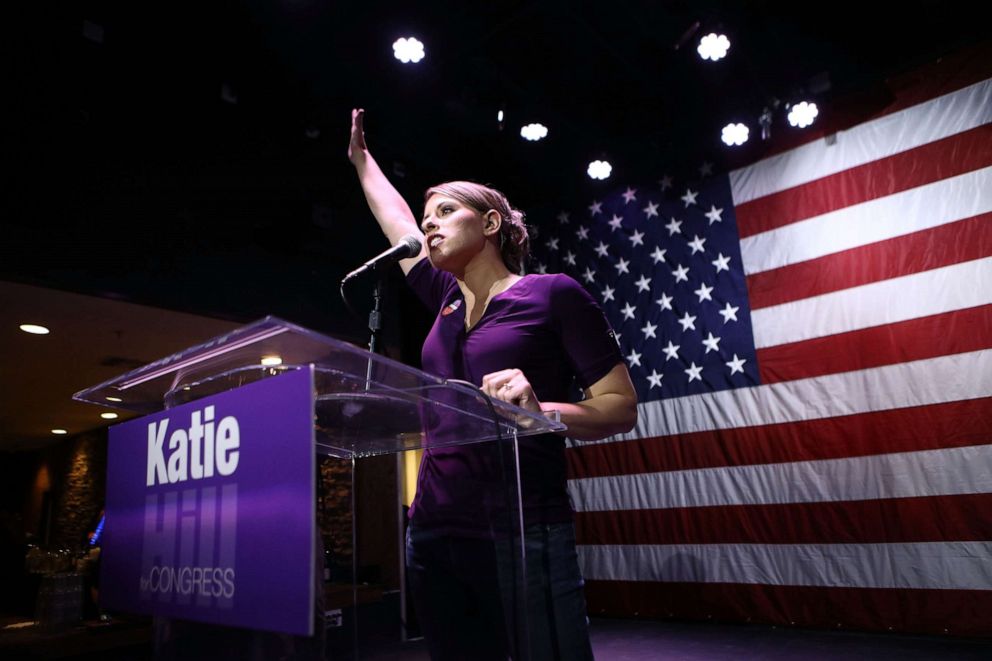
The Democratic strategist cautioned against drawing any broad conclusions from Tuesday’s election, which might not even have results on election night since California’s vote count process tends to be slow.
"He is their unicorn," the strategist said of Garcia, suggesting that it will not be a sign of a red wave. "If you extrapolate anything from this race, it is that he's an outlier."
For Democrats, they see the race as a "dry run" ahead of the fall.
"This is a good way for both campaigns to get in fighting shape," the strategist said. "To some degree, it's a dress rehearsal."
But Republicans are confident heading into both Tuesday and November about nabbing the seat, which would be the first time the GOP flipped a Democratic seat in California since 1998, when Bill Clinton was president.
"Christy Smith is a horribly flawed candidate who spit in the face of Mike Garcia’s military service and the public school teachers she voted to fire," NRCC Chairman Tom Emmer said. "These issues are going to sink her campaign next Tuesday and they will keep her sunk in November."
